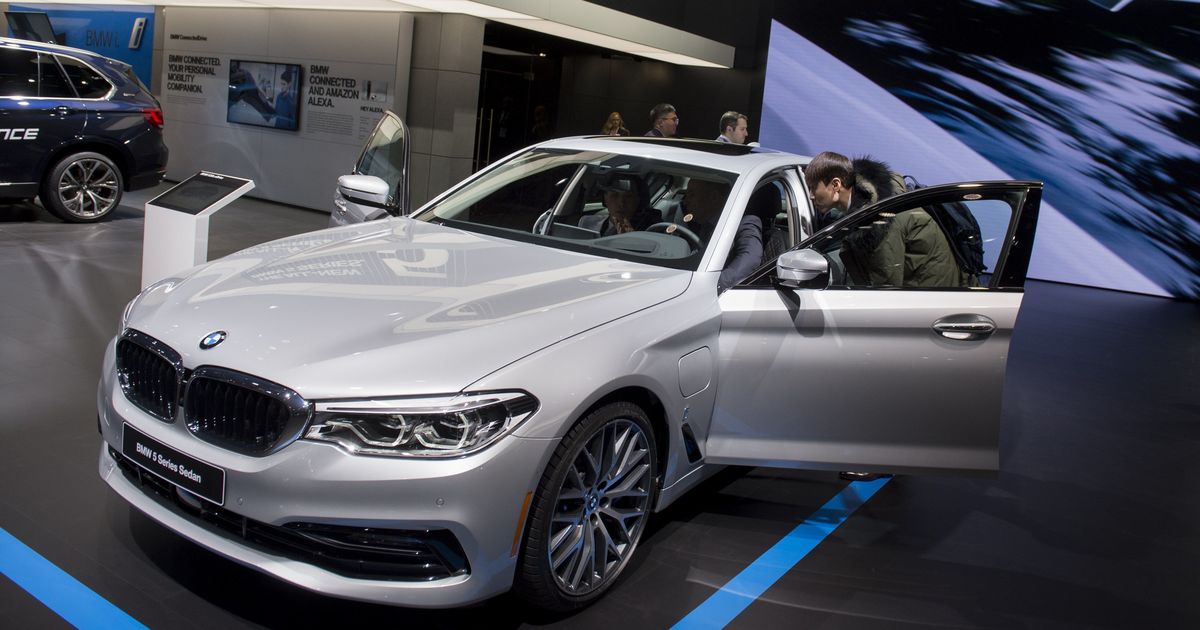BMW offices raided
March 21, 2018 | Expert Insights

German prosecutors have conducted a raid on carmaker BMW's headquarters. It is part of the continuing investigation into the emissions-cheating scandal that has badly damaged other German vehicle manufacturers.
Background
Founded in 1916, BMW, is a German-based company that manufactures automobiles and motorcycles. It is currently headquartered in Munich, Bavaria. Until 1945, the company also manufactured aircraft engines. BMW produces motor vehicles in Germany, Brazil, China, India, South Africa and the United States. In 2015, it was the world's twelfth largest producer of motor vehicles, with 2,279,503 vehicles produced. The Quandt family are long-term shareholders of the company, with the remaining stocks owned by public float.
Over the decades, Germany has emerged as the home for some of the biggest automobile makers in the world. Companies like Mercedes, Audi, and Daimler are all German-based. Germany's diesel scandal occurred because the government has long been too lenient on the automobile industry. With around 800,000 jobs and over 450 billion euros in sales, it is one of the country's key sectors. Germany is the world's fourth-largest car producer.
In 2017, multiple car companies in the country have had to recall millions of cars. In July 2017, Mercedes and Daimler announced a recall of over three million cars over concerns of emission standards. They asked owners to upgrade a software already present in the cars. Audi also announced that it would voluntarily retrofit 850,000 diesel cars with new software to improve their emission performance.
Volkswagen has initiated a recall of 4.86 million vehicles that had been sold in China over airbag problems. In fact, through the course of the scandal, Volkswagen has admitted to installing faulty software in 11 million vehicles around the world. Car manufacturing companies General Motors Co and Daimler AG's Mercedes-Benz announced earlier this year that they will be recalling the vehicles that came with Takata airbags. At least 3 million Mercedes Benz diesel cars and vans across Europe will be recalled over concerns of emission standards.
Analysis
Authorities believe that around 11,400 BMW cars may be equipped with “inadmissible defeat devices.” These devices were used to understate emissions during laboratory tests and thus circumvent the rules. The company has responded by noting that the software in question was installed by mistake.
BMW has noted that its cars (the ones being scrutinized) were sold with correct software. The company also stated that these cars “ran correctly for over two years” before being updated with incorrect software. “The BMW Group realized that a correctly developed software module had been allocated in error to models for which it was not suited,” the carmaker said. “A corrected software will be made available as soon as it has been approved by the relevant authorities.” In total, two locations were raided – Munich and Austria.
The company has also revealed that it will be recalling the cars in question. This is not the first time in the recent months when the company had to initiate a largescale recall. In November 2018, BMW of North America, LLC (BMW) announced that it will be recalling close to 1.4 million cars over concerns about fire risks. The recall was for cars in America and Canada.
Meanwhile, the company has noted in a statement that it was taking the situation “seriously.” It said, “The BMW Group takes the situation very seriously and has a significant interest in the circumstances being fully explained. The company is co-operating fully with the authorities. In addition, the company had already started an internal investigation and will obviously forward all information gathered so far to the authorities. The BMW Group continues to assume that the situation was caused by an incorrect allocation of the software and does not represent a deliberate attempt to manipulate exhaust emissions.”
Assessment
Our assessment is that the emission scandal has deeply affected the value and the brands of the German carmakers involved. It has also had a negative impact on German vehicle manufacturing industry overall and has become a political issue as well. We feel that in this fiercely competitive market, companies are forced to lower their standards with the objective of succeeding. In addition, there are legitimate concerns being raised regarding the environmental impact these vehicles are having in the world. These issues must be addressed urgently.








Comments